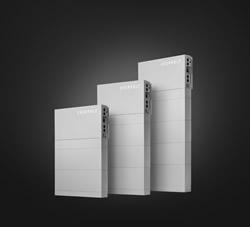Clean Energy Industry Introduced to Promising New Credentialing Pathway Micro-Credentialing Case Study Published by Interstate Renewable Energy Council
Latham, NY - Rapid growth in the clean energy sector has placed exciting yet daunting challenges on employers, employees and the workforce development infrastructure. The evolution of quality credentials has been critical to the young industry's development, including consumer confidence. However, in the kaleidoscope of rapidly changing job roles and clean energy technology, traditional, full-scope worker certification schemes are not always meeting the needs of employers to recruit and promote personnel with the required blend of validated skills.
The Interstate Renewable Energy Council (IREC) set out to test the concept of designing a process for developing high-quality, valid micro-credentials that are nimble, cost-effective, and narrower in scope, but co-exist alongside full-scope certifications. The goal: to create competency-based skills validation that can be more responsive to rapidly evolving industry demands and cross-over skills required between allied industries.
A case study released today reports on the micro-credential framework being developed and the first micro-credential pilot, still underway. The pilot is designed to bring a new credentialing option to certified energy auditors in the U.S. who want to expand their home health assessment expertise and offer more comprehensive services in the residential sector. Working with the Building Performance Institute (BPI) and the Green and Healthy Homes Initiative (GHHI), IREC partnered with Professional Testing, Inc. (PTI) to design and implement a prototype for a credible, valid, high-quality micro-credential development process.
"When micro-credentials stay true to a valid and vetted process, they bring a needed layer of quality into the market. Responsive to new or changing skills, they help match workers' competencies with workplace expectations," explains IREC President/CEO Jane Weissman.
IREC Director of Workforce and Credentialing Laure-Jeanne Davignon adds: "A micro-credential is not a second-tier designation then, but one that declares the achievement of skills and competencies for a clearly defined specialty function of a job."
For example, allied industry workers whose job tasks intersect with photovoltaic or other clean energy systems on certain projects could benefit from credentialing opportunities based on specific subsets of clean energy-related skills and knowledge needed on the job. Examples include municipal code officials and inspectors, real estate appraisers, first responders, electrical engineers, project managers and architects.
Micro-credentials can also apply to practitioners in a specific field who wish to add defined specialties to existing certifications, or to reach a higher credentialed status through stackable credentials. Specialized clean energy micro-credentials could, for example, cover topics such as energy storage, operations and maintenance, and data acquisition.
The reality is that clean energy workers experiencing frequent job requirement changes, as well as those based in allied industries with an ancillary or emerging clean energy component, may end up performing critical job tasks that require competencies for which they have not yet been assessed.
"Employers are increasingly looking for personnel with work portfolios encompassing cross-cutting and specialty skills that don't necessarily align with just one job," adds case study report author Anna Sullivan. "Additional competency validation options would fill gaps in the credentialing landscape, including 'just-in-time' micro-credentialing for specialty skills that can be layered on top of existing certifications when market changes and technology updates outpace quality assurance infrastructures."
Professional Testing Vice President Christine Niero adds: "Following accepted practices in measurement and assessment-development, and utilizing technology as the research and development platform, micro-credentials that save time and resources are providing a 'real-time' solution to qualifying a workforce."
The report looks at the strengths and limitations of the micro-credentialing framework developed by IREC and PTI in the context of the pilot, and at future directions for the continued development and adoption of micro-credentials within and potentially beyond the clean energy sector.
IREC is now in discussions with other key players in the clean energy sector to identify prospective partners who might also benefit from a micro-credentialing solution.
"This pilot initiative shows there are viable ways to "chunk" existing or new certifications into stackable micro-credentials, and that this goal can be achieved without diluting the value and rigor of full professional certification scheme processes," says Sullivan.
Micro-credential: An opportunity for individuals to demonstrate competency in a specialty area, not typically covering a full job description. Candidates may or may not be in the core profession, but some portion of their job might call for a specific set of knowledge and skills associated with that core profession to be performed competently and safely.
Download IREC's Micro-Credentialing Case Study
NOTE: IREC will hold a webinar on Thursday March 31, 2pm ET on Micro-Credentials: Creating New Pathways for Skills Validation. Details: contact annas@irecusa.org.
________________________________________
About IREC
IREC is a nationally recognized thought leader, stakeholder coordinator, expert resource and facilitator of regulatory reform. Our work expands consumer access to clean energy; generates information and objective analysis grounded in best practices and standards; and leads national efforts to build a quality- trained clean energy workforce, including a unique credentialing program for training programs and instructors. IREC's programs and policies benefit consumers, policymakers, utilities and the clean energy industry.
IREC is an independent, not-for-profit 501(c)(3) organization that relies on the generosity of donors, sponsors and program funder support.
Featured Product

